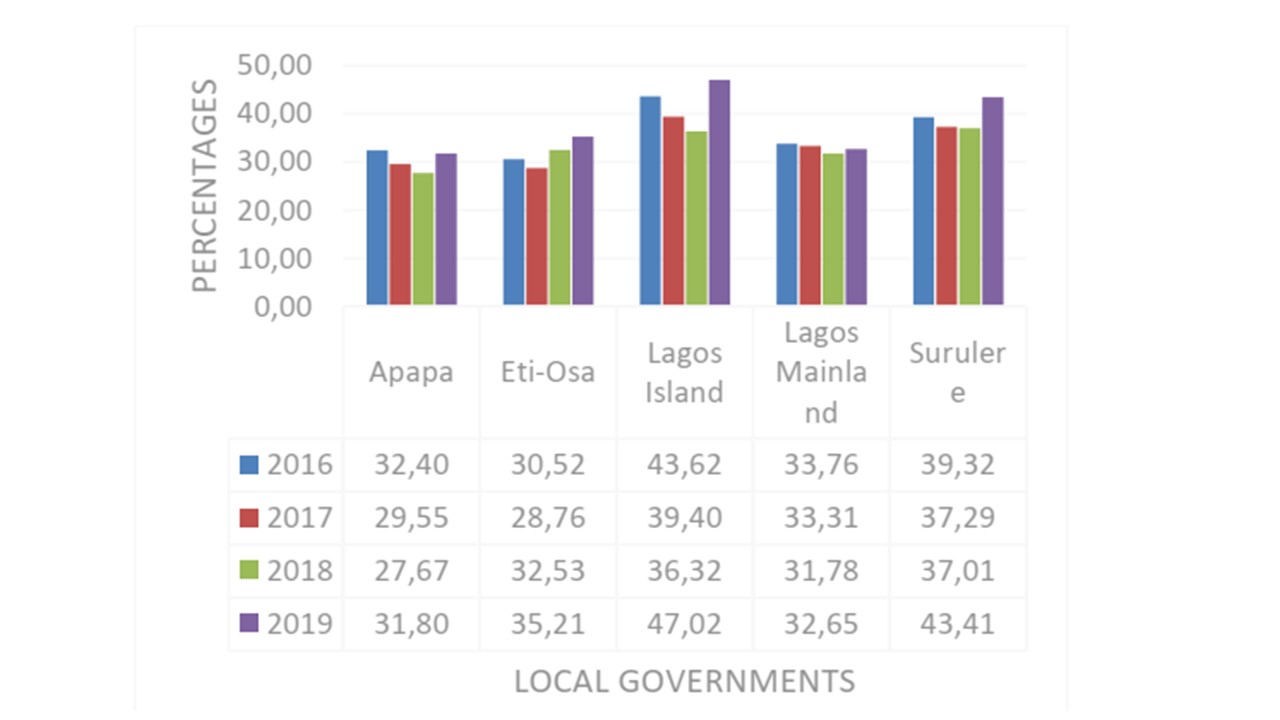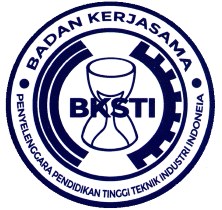Assessment of Study Habit Skills and Peergroup Influence on Pupils Academic Performance in Mathematics in Lagos Division Nigeria
DOI:
https://doi.org/10.12928/spekta.v3i1.4420Keywords:
Mathematics, Performance, Skills, Study HabitAbstract
Background: Technology is the mainstay of any societal development and Mathematics is seen as a tool for the community to achieve it. However, pupils’ performance in Mathematics have not been encouraging and this has been the concern of education stakeholders in the community.
Contribution: This study therefore assessed the study habit and peer group influence on pupils’ performance in mathematics.
Method: The sample comprised 450 basic-six pupils. Questionnaire and test were used to gather data. Research questions were answered using mean while research hypotheses were tested using PPMC.
Results: Finding revealed that there was no significant relationship between study habit skills and pupils’ performance in Mathematics and there was significant relationship between peer group influence and pupils’ academic performance in Mathematics.
Conclusion: It was recommended that schools should organize programmes for pupils to develop good study habit and to wary of the friends to be kept
References
Akinsemoyin, L. O., Olawuyi, B. O. & Yusuf, A. (2017). Relationship between test anxiety and pupils’ academic performance in mathematics in Lagos Central Senatorial District, Nigeria. Journal of the Nigerian Society of Educational Psychologists, 15 (1), 1-7.
NERDC (2012) The 9-Year Basic Education Curriculum (Mathematics). Lagos: NERDC
Ogbodo, R. O. (2010). Effective study habits in educational sector: Counselling implications. Edo Journal of Counselling, 3(2), 229-239.
Husain A (2000). Developing Study Habits. Wikipedia, the free encyclopedia.
Mark A, Howard C (2009). How to Study. Psychol. Sci. 20(4):516-522.
John M (2010). Students Study Habits and Styles. Retrieved from www.worldwidelearn.com.
Ashish R (2013). Study Habits for Students: Bad Ones to Avoid, Good Ones to Achieve Success. www.education.wisc.education/soe/newsevents retrieved 12/3/2016.
Anagbogu, M. A. (2002). Guidance and counseling in primary schools. Teacher’s Handbook, Awka, Nigeria: Mary Bright Publishers.
Palani, K. K. (2012). Promising reading habits and creating literate society. International Reference Research Journal, 3(2): 90-95.
Nikki K (2013). Common Bad Study Habits. Retrieved from www.newa4j ax.com2/2/2020
Egbo, A. C. (2015). The effect of study habits counselling on academic achievement of Probated students of enugu state college of education technical Enugu, Enugu state, Nigeria. International Journal of Recent Scientific Research, 6 (7), 5527- 5531
Balogun, A. O., Oniye, R. K., Abdulaziz, I., Olokooba, I. N., & Muhammad,G.M.F. (2017). Parental entrepreneurial experience and peer group influence as predictors of entrepreneurial intentions of undergraduates in University of Ilorin. Journal of Curriculum and Instruction, 10(2), 249-257. Published by Department of Science Education, University of Ilorin, Ilorin, Nigeria. Available online at https://www.unilorin.edu.mg/ejournals/index.php/jci
Castrogiovanni, D. (2002). Adolescence: Peer groups. Retrieved form: http://www.ianr.unl.edu/pubs/family/nf211.html.
Olalekan, A. B. (2016). Influence of peer group relationship on the academic performance of students in secondary schools: A case study of selected secondary schools in Atiba Local Government Area of Oyo State. Global Journal of Human-Social Science, 1(6), 4-13.
Adeola, O. Hong, D., and Burrows, H. 2002. Addition of enzyme to starter and grower diets for ducks. Poult. Sci. 81: 1842–1849.
Akinsola, M. K. (2014). Effects of game and poem enchanced instruction on pupils’ achievement in mathematics. International Journal of Education and Research. Vol. 2 No. 6 June 2014
Obafemi, K. E. (2016). Pupils related variables as predictors of academic achievement in Ilorin West Local Government. Unpublished M.Ed. Dissertation. Department of Teacher Education, University of Ibadan.
Ismail, N. A., & Anyawu, H. (2018). Differences in mathematics performance among Junior school students in Bayelsa. Journal of Educational Studies, 2, 8-11.
Shabbir, A.R, & Rukhsana, K. (2011). Comparison of study habits and academic performance of Pakistani Bristish and White British Students. Pakistan Journal of Social and Clinical Psychology, 9, 21-26.
Ebele, U. F. & Olofu, P. A. (2017): Study habit and its impact on secondary school students’ academic performance in biology in the Federal Capital Territory, Abuja. Educational Research and Reviews, 12(10), 583-588.
Hovland, M., Anderson, E., Maguire, W. G., Crocket, D. & Kaufman. J. (2004). Academic advising for student success and retention: Study Skills Inventory, p. 74
Adeninyi, V. (2011). Studying to Pass: Implication for Students. Lagos: Macmillan.
Okeowo, A. T. (2014). Emotional intelligence and locus of control as predictors of academic achievement among secondary school students in Ekiti. Unpublished M.Ed. Project, Department of Social Sciences Education, University of Ilorin.
Onwuegbuzie, U. (2001). Correlation between study habit and students’ academic success. Jos Journal of Education, 2(1), 27-31
Omotere, T. (2011). The effects of study habit on the academic performance of students. Ogun: Ego Booster Books.

Downloads
Published
How to Cite
Issue
Section
License
Copyright (c) 2022 Omoshalewa Lasbat Badamas , Balagun Abdulrasaq Olatunji, Elizabeth O. Uyanne

This work is licensed under a Creative Commons Attribution-ShareAlike 4.0 International License.
Authors who publish with SPEKTA (Jurnal Pengabdian Kepada Masyarakat: Teknologi dan Aplikasi) agree to the following terms:
- Authors retain copyright and grant the journal the right of first publication with the work simultaneously licensed under a Creative Commons Attribution License (CC BY-SA 4.0) that allows others to share the work with an acknowledgment of the work's authorship and initial publication in this journal.
- Authors are able to enter into separate, additional contractual arrangements for the non-exclusive distribution of the journal's published version of the work (e.g., post it to an institutional repository or publish it in a book), with an acknowledgment of its initial publication in this journal.
- Authors are permitted and encouraged to post their work online (e.g., in institutional repositories or on their website) prior to and during the submission process, as it can lead to productive exchanges, as well as earlier and greater citation of published work.

This work is licensed under a Creative Commons Attribution-ShareAlike 4.0 International License.












